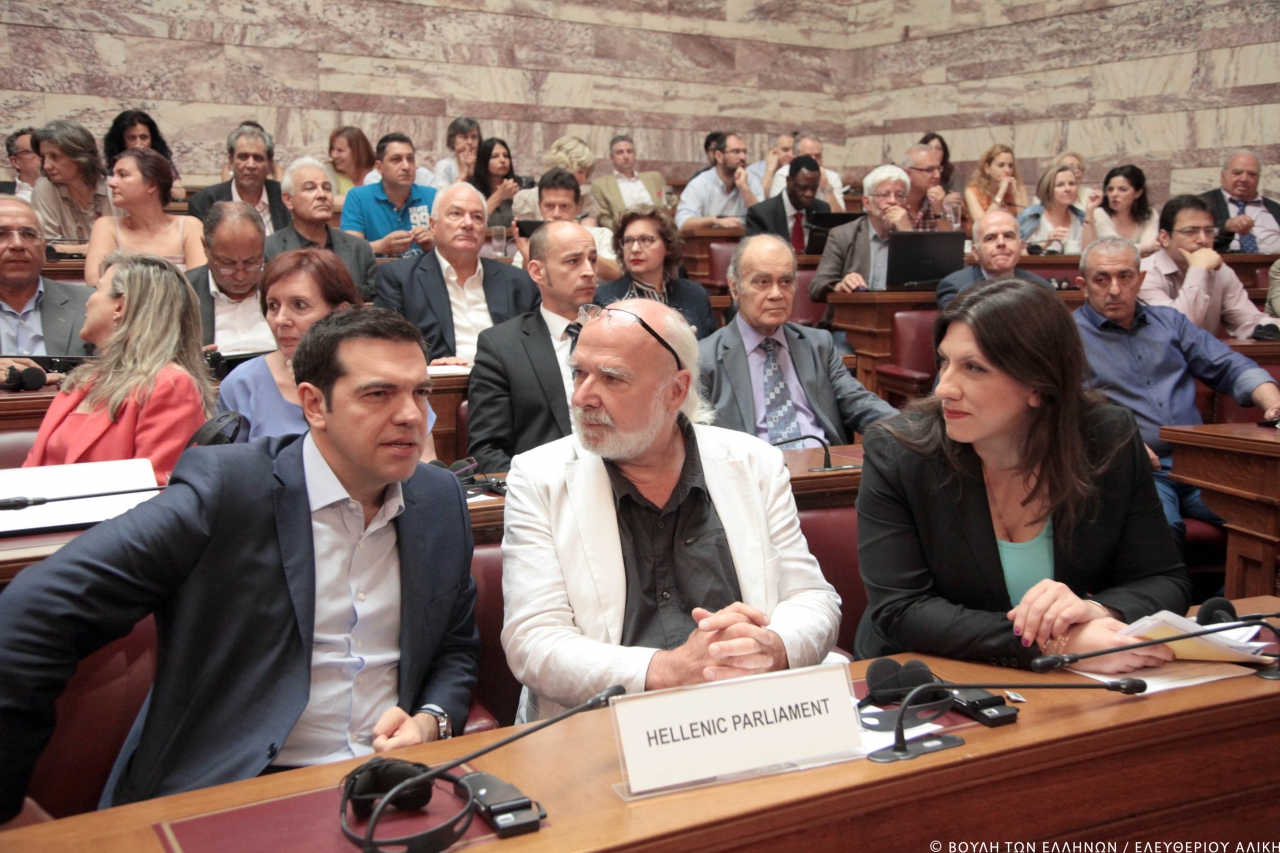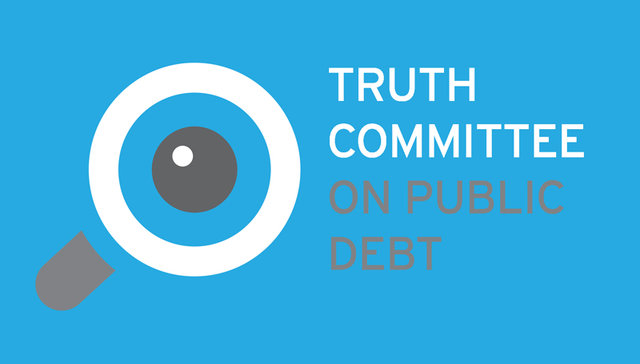By Julia, PACD collaborator
The Debt Audit gamble is key to understanding the outcome in Greece
The media, with their chauvinist and neoliberal stereotypes, have focused almost exclusively on Varoufakis to explain what was happening in Greece. It is always easier to build a myth than try to explain the complexities of the situation and this becomes even truer if they make things easy for you and choose a bloke with a reputation for being tough as their Finance Minister. And, despite the subversive situation where, for the first time ever in Europe, we are seeing a Prime Minister and a Minister stand up to the dictates of the troika, this is how the media have managed to create a picture that fits their dominant values. Here is a great man, a leading expert, and he alone will succeed in changing the situation. But should he fail, then there is nothing that anyone can do.
But the situation is obviously much more complex and the stance taken by Tsipras and Varoufakis cannot be explained without acknowledging the level of outcry and mobilization that Greece has seen in recent years as well as Syriza’s own evolution since previous elections. Moreover, there are nuances within the Syriza government itself, with various actors playing distinct roles. Against this backdrop it was no accident that whilst the Eurogroup was delivering its ultimatum in Brussels, Athens was issuing the Truth Committee’s preliminary report on Greek public debt.
The truth committee, headed by Éric Toussaint, came to the firm conclusion that “Greece should not pay this debt because it is illegal, illegitimate and odious”
The truth committee, headed by Éric Toussaint, came to the firm conclusion that “Greece should not pay this debt because it is illegal, illegitimate and odious”. The report also condemned the structural adjustment plans for causing a debt which is a “direct infringement on the fundamental human rights of the residents of Greece”. The report was, therefore, clear in its assessment that those responsible for the situation in Greece are not its residents but certain politically-motivated economic measures for the benefit big business. It also made clear that the Greek debt is unpayable and that the consequences of continuing to apply austerity could be disastrous. With this report on the table, it became increasingly difficult for the Greek government to give in.
We can, therefore, say that the strategic move by Zoe Kostantopoulou, speaker of the Greek parliament, in establishing the truth committee was key in the way events unfolded. Diego Borja, a member of that committee and former Ecuadorian minister, has pointed out that the international media have not given the report much attention but even so, its publication has influenced negotiations in so far as it has ensured that the condemnation of the debt mechanisms, the consequences of austerity and the need to default on the debt, all of which had been swept under the carpet during negotiations, once again took center stage.
The Greek example shows us yet again the clout that debt audits can have
The Greek example shows us yet again the clout that debt audits can have – as was the case in Ecuador, where the debt audit legitimized relief of 70% of the debt, allowing resources to be freed up for basic services like education and health. Establishing the illegitimacy or illegality of the debt through an audit, therefore, enables you to deal with your creditors from a position of strength, shift the role of victim and condemn those responsible. At the same time, debt audits act as a political and economic educational tool as they provide the whole population with information about the criticisms of the neoliberal economic system and its consequences, thereby turning the neoliberal debate that seeks to create personal responsibility for structural inequalities on its head.
We advocate citizen audits at the Spanish Citizen Debt Audit Platform (PACD). Citizen audits can have an even greater impact given their potential to empower citizens, legitimize the process and dismantle the neoliberal economic model at a grassroots level.
In this regard, it is important to acknowledge that a debt audit will have much greater impact if it is undertaken by a large proportion of the population and this is the reason why we advocate citizen audits at the Spanish Citizen Debt Audit Platform (PACD). Citizen audits can have an even greater impact given their potential to empower citizens, legitimize the process and dismantle the neoliberal economic model at a grassroots level. It is always easier to mobilize against consequences than causes and this makes building a powerful anti-debt movement difficult but the example of Greece shows us how necessary it is to build a strong movement in the face of debt. A movement which condemns debt’s causes and consequences and which strongly defends the need for “non-payment” as a crucial element in regaining national sovereignty and rights.



